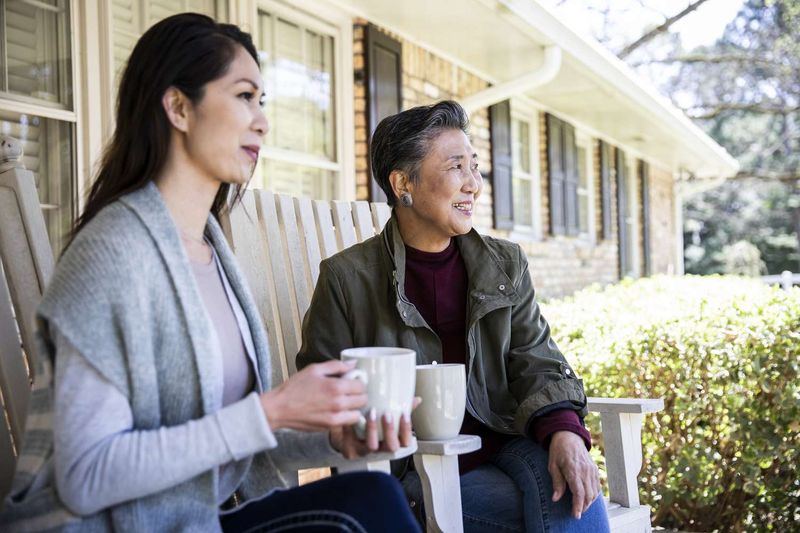Regret And Responsibility: 16 Ways Seniors Unintentionally Failed Their Kids And Grandkids
In a world where intentions often fall short of outcomes, seniors have unknowingly shaped the lives of their descendants in ways both subtle and profound.
This blog post is a reflection—a compassionate exploration of how certain generational decisions may have inadvertently failed the younger generations.
It’s a journey of understanding, not blame, as we delve into these 16 ways seniors meant well but left behind challenges that the young continue to unravel.
1. Prioritizing Appearances Over Emotional Honesty

Appearances were everything. For many seniors, maintaining a polished exterior was paramount, even at the cost of emotional honesty. This focus on outward perfection often discouraged open discussions about feelings.
Younger generations learned to bottle emotions, leading to internal conflicts. “Don’t air your dirty laundry,” they said, inadvertently suppressing vulnerability and authenticity.
The legacy of prioritizing appearances left many without the tools to communicate their inner world effectively, a skill crucial for nurturing genuine relationships.
2. Equating Survival with Success

Survival was success. For those who lived through hardships, merely making it through was a triumph. However, equating survival with ultimate success overlooked the importance of fulfillment and happiness.
This mindset passed down a relentless work ethic, often sidelining joy and leisure, which are equally vital for a balanced life.
Children and grandchildren inherited a drive to succeed but sometimes at the expense of their well-being, struggling to understand that success isn’t solely about endurance.
3. Teaching Silence Instead of Self-Expression

Silence was golden. In an era where children were seen but not heard, seniors often taught silence as a virtue. This left a legacy where communication wasn’t prioritized, and feelings were left unspoken.
The younger generation grew up without the encouragement to express themselves, leading to an internalization of emotions.
Learning to voice thoughts and emotions later in life posed challenges, as the foundation of open communication was never solidified in childhood.
4. Dismissing Therapy as Weakness

Therapy was taboo. Many seniors perceived seeking help for mental health issues as a sign of weakness. This stigma left younger generations without the support they needed during emotional turmoil.
“Just tough it out,” they advised, unintentionally fostering a culture that hesitated to seek professional help.
The dismissal of therapy as a legitimate support mechanism perpetuated a cycle of untreated mental health issues, affecting relationships and personal growth.
5. Enforcing Gender Roles That Limited Everyone

Rigid roles defined lives. Many seniors enforced strict gender roles, believing they provided structure. However, these roles often restricted personal growth and expression for everyone involved.
Boys were told not to cry, while girls were encouraged to be nurturing, limiting the full spectrum of human experience.
These limitations impacted self-discovery and contributed to gender inequality. Gradually dismantling these roles became crucial for the younger generation in their pursuit of authenticity.
6. Making Money the Only Measure of Worth

Wealth was the yardstick. Seniors often equated financial success with personal worth, a notion that deeply influenced subsequent generations.
The relentless pursuit of wealth overshadowed personal fulfillment, leaving little room for exploring passions that didn’t yield monetary gain.
This singular focus on financial success created pressure, leading to an identity crisis for those who couldn’t meet these standards.
7. Downplaying Emotional Harm if It Wasn’t Physical

“Sticks and stones,” they said. Many seniors believed that if harm wasn’t physical, it wasn’t real. This mindset minimized emotional pain, leaving children and grandchildren without validation for their feelings.
The emphasis was on resilience, yet it inadvertently ignored the need for emotional healing.
Recognizing and addressing emotional harm became a crucial step for the younger generations, striving to heal and validate their experiences.
8. Pressuring Kids into Paths They Didn’t Choose

Paths were pre-determined. Many seniors believed in choosing stable, respectable careers for their children. However, this often pressured them into paths that weren’t their own.
The well-intentioned guidance sometimes stifled individuality, leading to a sense of unfulfilled potential.
Finding the courage to pursue one’s true passion became a significant challenge for those who grew up under these expectations.
9. Ignoring the Mental Health of New Parents

Support was scarce. Seniors often overlooked the mental health struggles of new parents, assuming that parenthood was naturally fulfilling.
This lack of understanding left new parents feeling isolated, struggling in silence without the support they desperately needed.
Addressing mental health openly became essential for younger generations, recognizing that support systems need to extend beyond physical needs.
10. Never Apologizing—Even When They Knew They Were Wrong

Pride over apology. Many seniors found it difficult to apologize, even when they recognized their mistakes. This lack of accountability sometimes created barriers in relationships.
The inability to say “I’m sorry” left unresolved tensions and misunderstandings, often carried into the next generation.
Learning the value of humility and apology became a vital lesson for children and grandchildren striving for healthier relationships.
11. Teaching Shame Around Intimacy, Feelings, and Failure

Shame was a shadow. Many seniors instilled a sense of shame around topics like intimacy, feelings, and failure, believing it was a form of guidance.
This approach often led to secrecy and confusion, hindering open discussions about these natural aspects of life.
Overcoming this ingrained shame became crucial for younger generations in their journey towards openness and self-acceptance.
12. Mocking Sensitivity Instead of Nurturing It

Sensitivity was mocked. Seniors often perceived sensitivity as a weakness, mocking rather than nurturing it. This attitude left sensitive individuals feeling misunderstood and undervalued.
The dismissal of sensitivity hindered emotional intelligence and empathy, traits valuable for personal and professional relationships.
Embracing sensitivity became a pathway to stronger, more compassionate connections for the younger generation.
13. Minimizing Generational Trauma

Trauma was minimized. Many seniors chose not to acknowledge generational trauma, hoping it would simply fade away. However, this avoidance often perpetuated cycles of pain.
Ignoring past traumas left the younger generation to confront these issues, often unprepared and unsupported.
Recognizing and addressing generational trauma became vital for healing and breaking the cycle for future generations.
14. Avoiding Tough Conversations About Race, Identity, or Privilege

Conversations were avoided. Many seniors hesitated to discuss race, identity, or privilege, topics seen as uncomfortable or divisive.
This avoidance left younger generations without guidance on navigating these crucial social issues.
Opening up these conversations became necessary for fostering understanding and inclusivity in a rapidly changing world.
15. Focusing on Discipline More Than Connection

Discipline over connection. Seniors often prioritized discipline, believing it built strong character. However, this sometimes overshadowed the necessity of building emotional connections.
The emphasis on strict rules left a gap in nurturing relationships, where emotions and understanding were secondary.
Learning to balance discipline with empathy became essential for younger generations aiming to foster genuine connections.
16. Believing Love Should Be Earned, Not Shown Freely

Love was conditional. Many seniors believed love needed to be earned through actions and achievements, rather than shown unconditionally.
This belief sometimes made affection feel out of reach, contingent on meeting specific expectations.
Teaching that love is an inherent right became crucial for fostering self-worth and secure relationships among the younger generation.






